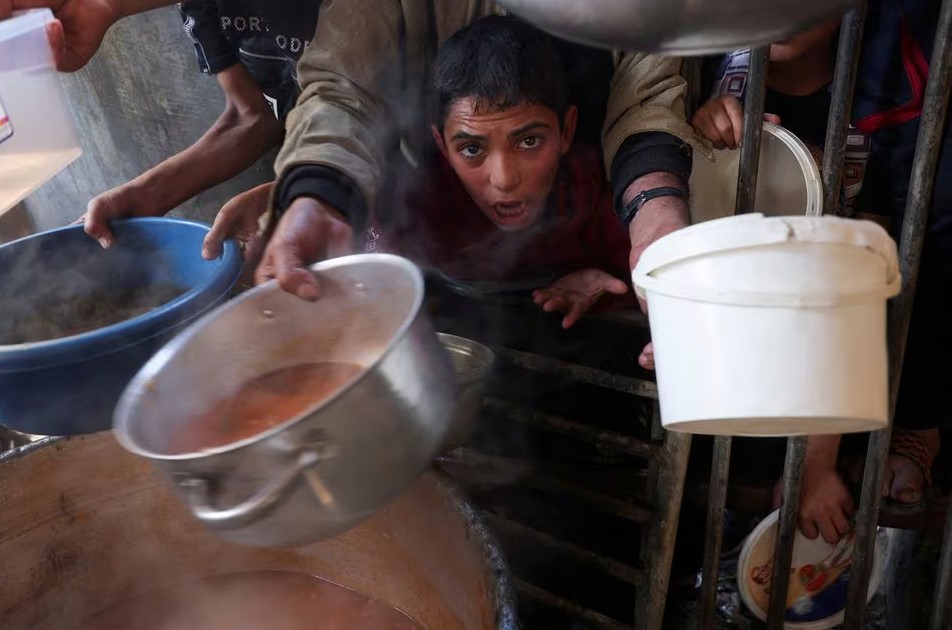“Some people have not eaten in days, the children have no winter clothes, there’s no medical care. Most products are not available on the market and when they are available, they are very expensive,” said Olga Cherevko from the OCHA team.
“Shelter is a huge need and of course food, and most of all peace,” Cherevko added.
Of the 2.3 million people in the Gaza Strip, the OCHA says 378,000 are at what it classifies as phase 5, or catastrophic levels of hunger.
Phase 5 refers to extreme lack of food, starvation and exhaustion of coping capacities.
It added that 939,000 people face phase 4 “emergency” levels of hunger.
According to OCHA, nutrition-focused NGOs and other UN agencies can only meet 25 percent of the nutritional needs for malnourished children and vulnerable mothers in the next two months.
The UN rapporteur on Palestine has also said on Tuesday the world is witnessing “mass starvation” in Gaza, where more than half of the 2.3 million population is food insecure due to Israeli blockade and bombardment since last October.
“I never thought we would witness mass starvation of these proportions used in the 21st century. Yet here it is in Gaza, after 100 days of bombing, with insufficient food, fuel and water allowed in,” Francesca Albanese wrote on X.
“Children are dying first. Adults will follow. Before our eyes.”
“My plea to Israelis: We cannot stop this without you. I fully acknowledge your enduring pain, including for the hostages still in Gaza,” she said, adding: “Please do not overlook the devastation inflicted on Gaza, especially its children, half of the population trapped in this horror. This makes no one safer.”
Her remarks came a day after a joint statement shared by the World Food Program, UNICEF, and the World Health Organization.
“Children at high risk of dying from malnutrition and disease desperately need medical treatment, clean water and sanitation services, but the conditions on the ground do not allow us to safely reach children and families in need,” UNICEF Executive Director Catherine Russell announced in the joint statement.
WFP Executive Director Cindy McCain, for her part, warned: “People in Gaza risk dying of hunger just miles from trucks filled with food. Every hour lost puts countless lives at risk.”
Israel has pounded the Gaza Strip since a cross-border attack Hamas on Oct. 7, killing nearly 24,500 Palestinians, mostly women and children, and injuring more than 61,000 others, according to local health authorities.
Israel says around 1,200 people have been killed in the Hamas attack.
The Israeli onslaught has left 85% of Gaza’s population internally displaced amid acute shortages of food, clean water and medicine, while 60% of the enclave’s infrastructure has been damaged or destroyed, according to the UN.
